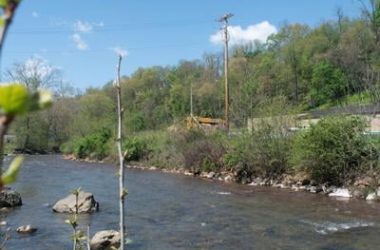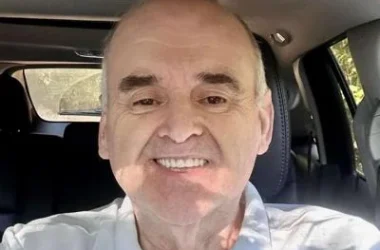HUNTINGTON – The acquisition of an additional $1 million in federal funding and the recent launch of a tracking system will help West Virginia improve its testing of backlogged and future sexual assault kits throughout the state, according to state officials.
According to a release from the U.S. Department of Justice, West Virginia was one of nine jurisdictions to be awarded part of over $13.6 million in funds to expand sexual assault kit testing through the Bureau of Justice Assistance National Sexual Assault Kit Initiative (SAKI).
The West Virginia Division of Justice and Community Services also announced last week the launch of an online system that enables the tracking of sexual assault kits as they travel from health care facilities to investigating law enforcement agencies and then to a forensic testing lab.
The project was pushed forward last year after about $3 million in grants from the New York District Attorney’s Office and federal SAKI grants was awarded to the state. The funding was designated for 16 counties throughout the state; two other counties – Cabell and Monongalia – were testing under previous funding.
Terry Fenger, director of the Marshall University Forensic Science Center, where the kit testing is currently proceeding, said the grant money made the future more clear for the remaining 37 counties.
“It will help the state expand testing of sexual assault kits into other counties, which is greatly needed,” he said.
West Virginia backlog testing started with two of the state’s most populous counties, Cabell and Monongalia, around 2013, which amounted to the testing of 558 kits dating back at least 16 years upon completion.
West Virginia Department of Military Affairs and Public Safety spokesman Lawrence Messina said inventorying was completed in 12 of the 16 counties the 2015 SAKI and New York grants covered, amounting to roughly 1,000 kits. Inventory in the remaining four counties is expected to be completed in early October, he said. In the meantime, the awarding agencies have granted permission to the state to begin the testing process.
Messina said the funding will also help with the improvement of kit storage at WVSP’s forensic lab and cover expenses of victim notification, transportation of the kits and investigations.
In addition, the West Virginia Division of Justice and Community Services and the West Virginia State Police Forensic Laboratory have developed an online system to ensure the future tracking of new kits.
According to Messina and statements made to the Business Wire, before the new system was implemented the distributed kits were recorded in a spreadsheet, but there was no way to know when the facility used a kit and where it went after it was used.
The online Sexual Assault Evidence Collection Kit Information System will eliminate that issue by enabling crime labs to manage kit information once received.
The system will also give crime lab personnel the ability to evaluate each piece of evidence collected in a kit after testing has been completed.
In addition, the system will provide feedback to health care professionals to aid in the quality of the evidence collected to provide better sexual assault examinations by Sexual Assault Nurse Examiners.
Messina said several agencies were involved in the effort to eliminate the backlog, many of whom joined under the umbrella of the Sexual Assault Forensic Examination Commission (SAFE).
Among previously mentioned groups, the West Virginia Prosecuting Attorney Institute and West Virginia Foundation for Rape Information and Services, with others, have put the effort forward to make the testing victim-centric, Messina said.
“We have this working group that consists of the partners in this and others to help manage the overall strategy,” he said. “We are going to have training in early next year on the victim notification part of this. As we identify rape kits and send them to testing, we want to make sure the victim of the crime is aware of what is going on.”
Messina said all groups involved in the elimination effort shared a common goal.
“This has been a problem nationally,” he said. “Certainly a lot of partners in the current effort here really want to hit this problem head-on, just like folks are in other parts of the country.”
Messina said the West Virginia Division of Justice and Community Services applied for the grant in both 2015 and 2016. Last year the New York District Attorney grant was received by the WVSP. The science center joined in partnership with WVSP forensic lab for the testing.
Follow reporter Courtney Hessler at Facebook.com/CHesslerHD and via Twitter @HesslerHD.





